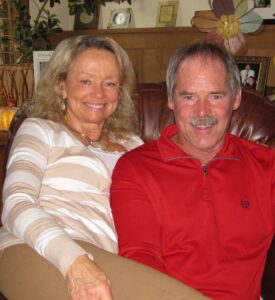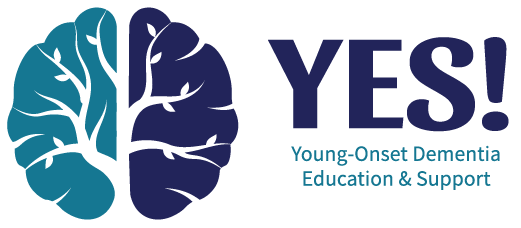 On November 28, 2016, I lost my wonderful husband Ron after his (our) 10-year journey with dementia. He was 67 years old and had been diagnosed in his mid-50’s. I knew something was not “right” long before the official diagnosis, and I chalked it up to work stress! He was having trouble with directions while driving, hiring people to do chores he once enjoyed doing, his technical and math skills were diminishing, and I thought he just wanted more free time to golf!
On November 28, 2016, I lost my wonderful husband Ron after his (our) 10-year journey with dementia. He was 67 years old and had been diagnosed in his mid-50’s. I knew something was not “right” long before the official diagnosis, and I chalked it up to work stress! He was having trouble with directions while driving, hiring people to do chores he once enjoyed doing, his technical and math skills were diminishing, and I thought he just wanted more free time to golf!
First lesson: Do not stick your head in the sand when a problem is staring you right in the face! Ron was a brilliant businessman and owned and ran an electrical contracting firm which was extremely successful. One day my daughter said, “Something is wrong with dad, I think he needs to see a doctor!” I approached the subject with him expecting him to get angry and deny anything was wrong, he simply said, “I know.” When we saw the neurologist, he could not answer any of the questions, or draw the images requested. I was dumbfounded! The diagnosis was quick: young onset Alzheimer’s. Ron did not want anyone to know because he was afraid it would affect his business. He was determined to fight his diagnosis, entered a drug trial, and tried his best to continue his normal life. It was not long before we realized that was not going to be possible. After a year, Ron realized he had to resign and sell his portion of his company to his partners. At the time, I think we were oblivious that dementia was a fatal disease. It was difficult watching Ron die a little bit more each day. I cut back on my job so I could spend more time at home with him. After multiple accidents, due to his declining physical skills, I had to hire home health care aids while I went to work. By that time, he needed to be toileted, fed and dressed. I had to bathe him every morning, cut his food into bite size pieces so he could attempt eat with his fingers. I started to feel like his mother, not his wife. He was behaving like a child, in his own little world, forgetting how to be empathetic and caring only about his immediate needs.
Lesson 2: Do not feel guilty if your feelings for your partner change. Ron was not the same person who I married, and I had to learn how to love him anew. I had lost my best friend, lover and confidant.
Lesson 3: Self care is as important as caring for your loved one. To be a good caretaker, you need to take care of yourself. That includes going out and being with other people. You need to nurture yourself so you can give your best to your loved one. I took care of Ron at home for 7 years, most of the time by myself, which leads me to lesson 4!
Lesson 4: Asking for help is imperative. I wanted to be strong and do everything for Ron! It takes strength and bravery to ask for help from family and friends and most of the time they are just waiting to be asked! This is part of nurturing yourself.
One day I realized Ron could no longer read. We were trying to record a book for our first baby grandchild so she would have a recording of his voice as she grew up. He could not do it. This is when I finally realized the decline was not going to stop. He began having trouble talking and remembering words. When he did talk, his speech patterns made him sound intoxicated. I was feeding him, toileting him, changing his diapers and the sheets almost every night. After one final accident with his caretaker, the doctor told me it was no longer safe for him or me for Ron to be living at home. He went to rehab and then assisted living. A few months later I moved to Maryland to be near my daughter and grandchildren. Ron resided in Copper Ridge, in Sykesville and because of all his physical difficulties, his diagnosis was changed to frontal lobal dementia. Dr Nicole Absar, Neurology Psychiatrist said he was one of the worst cases she had ever seen. I visited every day and began to realize lesson 5.
Lesson 5: Everyone has a story! Their worst-case scenario may be a water leak, a car accident, a job loss, a troubled child, etc. To them, they are dealing with a big problem and they need an ear to listen just like you do. Be a listener and a support for someone else when they go through hard times, even if it seems small compared to your hardship.
Lesson 6: Do not forget to nurture the other hats you wear! You may be someone’s daughter, sister, friend, aunt, teacher, co-worker, mother, neighbor, or grandmother. You want those hats to still be there at the end of this journey. Life must go on, so choose to live your life the way your loved one would want you to! Make the most of what you can give to others, look at your glass as half full, not half empty. Make a difference to someone or something. Live!
Ron was a wonderful husband, father, friend, businessman and man! This is how I choose to remember him. He never had a chance to know his three beautiful grandchildren. Yet, I know he is looking down on them and watching them grow. When I dream about him, he is healthy, happy and telling me, “Babe, You are doing great! Love, live and make a difference! I am with you always!”

